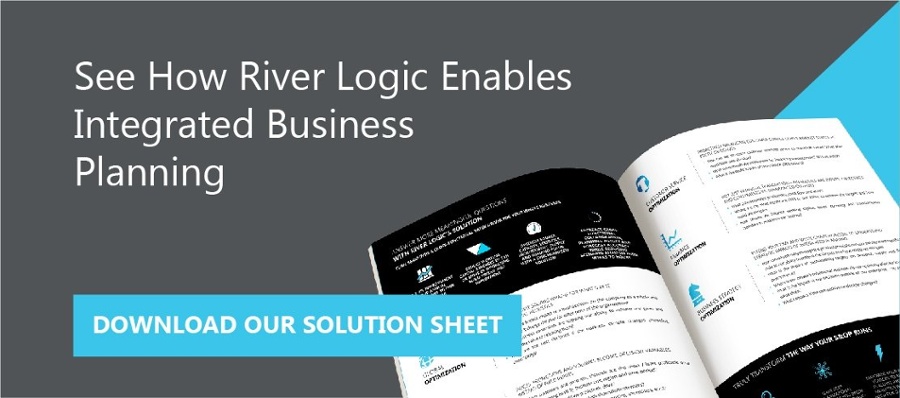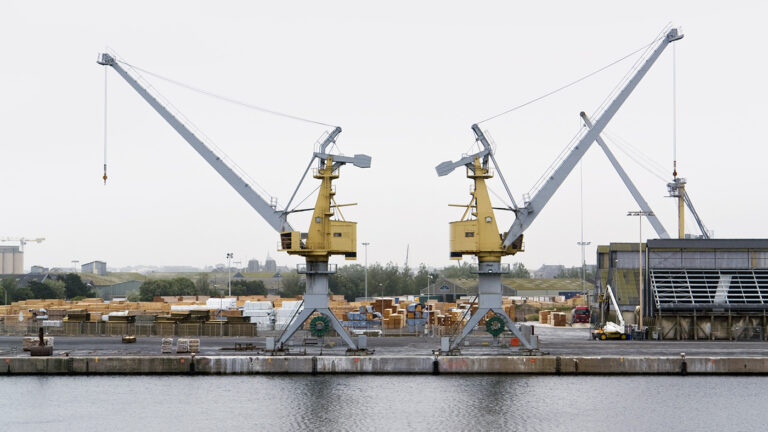For example, why do L’Oreal and Apple consistently score notoriety over 29 other superior supply chain companies and more than 500 publicly-held ones?¹ We take a look at several reports on leading supply chain companies, specifically with the filter of advanced analytics, to highlight the answers.
The first takeaway is that the majority of supply chain companies have substantial experience with two of the three basic kinds of advanced analytics. Companies creating business intelligence with existing data show what’s currently happening with descriptive analytics. Companies forecasting what could happen based on historical data rely on predictive analytics. The third type of advanced analytics — prescriptive analytics — uses optimization or embedded decision logic rules to find out what should be done in certain situations.
Prescriptive analytics, the most advanced form of analytics, provides the best way forward given specific business variables, inputs, and objectives. Gartner reports that prescriptive analytics will triple in use by 2022 with large and midsize companies.² This increase allows companies to find increased profits through trade-offs in the end-to-end value chain. In addition to maximizing profits, companies using advanced analytics gain insights into growth opportunities and reduced costs.
Who’s Winning in Supply Chain with Integrated Business Planning?
While not quite an apples-to-apples comparison, reports on supply chain leaders from Gartner’s Top 25 Supply Chains³ and Supply Chain Insights’ 2019 Supply Chains to Admire both measure revenue growth and inventory turns to identify supply chain company winners.
At a high-level, differences include company type, return type (assets vs. invested capital), and calculation criteria.
Top supply chains range from industries such as personal products, food and beverage, and discrete manufacturing, and include well-known industry titans such as:
- Apple
- Nike
- PepsiCo
- Home Depot
- 3M
As it relates to advanced analytics, other commonalities separating the leaders from the rest of companies in sales and operations planning, as well as other processes, are as follows:

Top Supply Chain Companies Use Advanced Analytics Solutions Instead of Spreadsheets
Although a popular tool for crunching data, spreadsheets fall short — if not detrimental — for supply chains. Spreadsheet usage cited as error-prone is still prevalent in most companies with four out of five companies using spreadsheets as a primary tool for supply chain planning. However, only 39% of companies say that spreadsheets enable effective collaboration.
The elite supply chain companies, however, have already moved to advanced analytics solutions as compared to their peer companies.
Top Supply Chain Companies Use Advanced Analytics Solutions for Cross-Enterprise Trade-Offs
Because of the spreadsheets’ inflexibility, it’s unlikely that these same companies are limited in using spreadsheets for the S&OP process as an example, integrating silos like manufacturing, procurement, or sales.
Ventana Research’s perspective reports that today’s status quo siloed planning can result in:
- longer than necessary delivery lead times,
- higher freight costs, and
- bloated inventories.⁴
Less than half (47%) of organizations have accurate supply chain plans. Analyst Robert Kugel says the best result is almost never achieved when the process consists of each unit applying simple rules to optimize its own performance.
Top supply chains know that integrated planning identifies critical trade-offs, gaining a higher level of understanding that positively affects cross-enterprise silos.
Top Supply Chain Companies Use Advanced Analytics Solutions to View Operational and Financial Data Simultaneously
Sales and Operations Planning: Just Mediocre emphasizes that planning must include the ability to view and analyze operational and financial data simultaneously.
This ability is important when it comes to knowing how decisions will alter company-wide profitability. Customers that consider their financial and operational data can identify optimal financial outcomes on the balance sheet or income statement while meeting revenue and fulfillment targets, all within the real-time constraints of their business.

Example: A Top Supply Chain Company’s Use of Advanced Analytics
A snack-food manufacturer with dozens of North American manufacturing plants had no visibility into supply chain planning trade-offs. Using more than 25 spreadsheets to create production allocation plans, they knew they were missing out on significant profit opportunities. With River Logic’s production allocation solution, hundreds of thousands in cost savings per week have been uncovered. Additionally, they have uncovered $2.5M in opportunity costs from freed up inventory.
View other examples of supply chains using advanced analytics here.
Other Differentiators Recommended for Supply Chain Planning Software
Advanced analytics needs to support all levels of supply chain maturity, including Stage 4 and higher, leveraging mathematical optimization to address a multitude of decision-making challenges across the supply chain.⁵
This delivery is a tall order, causing research firms to recommend that these sophisticated solutions are made easier to use. In one of its reports, Gartner predicts the average user base will grow within organizations as technology continues to become more focused on business users rather than data scientists.
As the 2019 Supply Chains to Admire states, “This requires holistic organizational thinking, which is quite different than traditional functional thinking. This can result in a shift in analytics and reporting.”
¹2019 Supply Chains to Admire, September 1, 2019, Supply Chain Insights.
²Forecast Snapshot: Prescriptive Analytics Software, Worldwide, 2019, Gartner Research.
³The Gartner Supply Chain Top 25 for 2018, May 16, 2018, Gartner Research.
⁴Sales and Operations Planning: Just Mediocre, November 15, 2018, Robert Kugel.
⁵River Logic Named a Visionary in Gartner’s Magic Quadrant for Sales and Operations Planning Systems of Differentiation, June 25, 2019, River Logic.



